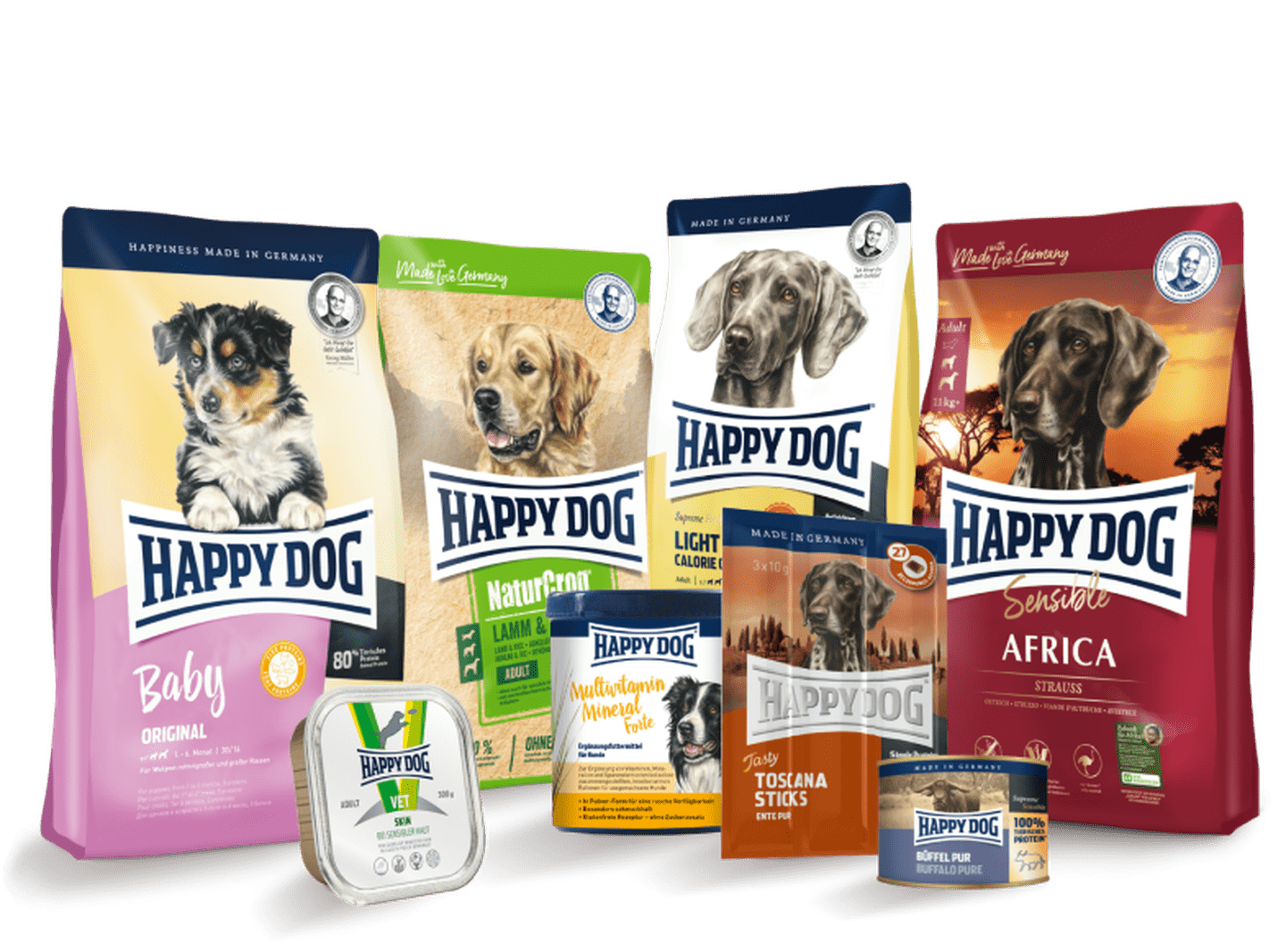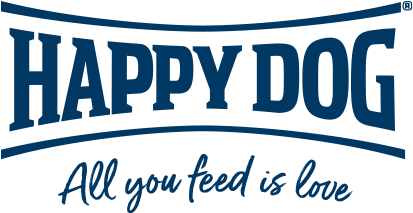Dog’s have different energy requirements depending on their stage of life.
A puppy’s first six-months is the “main growth phase” for a dog. During this time the puppy grows very quickly, some breeds can reach up to 75 % of the total body weight as an adult dog at this stage.
The need for energy and high-quality nutrients in appropriate amounts is correspondingly high during this period in comparison to adult dogs, that require a stable and consistent energy source.
Puppy food requirements
Phase 1
A puppy will start to be weaned from its mother’s milk from 4 weeks old and after this it will enter its main growth stage, which lasts until 6 months old. A diet that is high in protein and fat is necessary to meet their requirements.
Phase 2
After 6 months, they enter the moderate growth phase. It takes another 6 to 12 months before a young dog is fully grown. They spend much more time in this 2nd growth phase and will put on weight more slowly. So, the energy content of the food needs to be reduced to avoid growth disorders.
Adult food requirements
After 12 – 18 months, depending on the breed, your dog will be considered an adult and will be fully grown. Their protein and fat requirements once needed for growth will no longer be and therefore, they should move onto a diet which replicates this.
An adult dog’s food requirement will be contingent to a few factors such as their size, age and activity level. But you will find a high-quality adult food with a protein content between 20-29 percent and a fat content of 7-14 percent.
- If you and your dog partake in an activity such as Flyball, agility or dog-sled racing then your dog will require a diet that supports this by having a higher fat and protein content.
- Smaller breeds exert more energy as they tend to be more active, therefor you will find dog food for small breeds with a slightly higher protein and fat content.
- If your dog is a Senior dog, you will need to reduce the amount of protein and fat to adjust to its requirements. Read more on Senior dogs here.
- If you are looking for food that is a little bit older browse our adult diets here.
H2: You might be interested in


